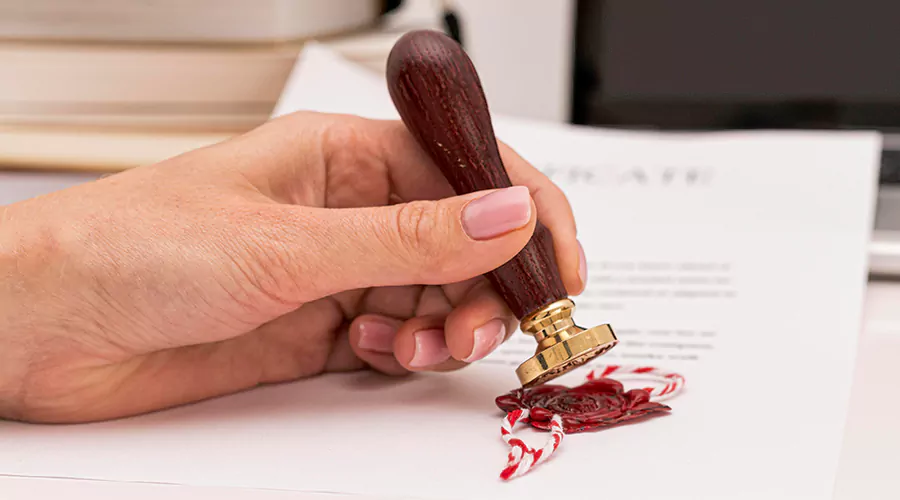HOW LONG DOES LAW SCHOOL TAKE?
If you are considering a career in law, it is important to understand how long it takes to complete law school. Law school requires a lot of dedication, patience, and time. Knowing the typical timeline can help you prepare for this academic journey. Here is a detailed look at how long law school usually takes, including different timelines and what happens after graduation.

Standard Duration of Law School
The Juris Doctor (J.D.) Program
In the United States, most people earn a Juris Doctor (J.D.) degree to become a lawyer. This degree usually takes about three years to complete if you are a fulltime student.
First Year (1L): Foundational Legal Education
The first year of law school, known as 1L, is all about building a strong base in law. During this year, students take core courses such as Civil Procedure, Constitutional Law, Contracts, Property, Torts, and Legal Research and Writing. These classes are designed to introduce you to the basic principles of law, how to analyze legal cases, and essential skills for becoming a successful lawyer. In the first year, you will often use Black’s Law Dictionary to help understand complex legal terms and concepts. This foundational year is crucial because it prepares you for more advanced studies and practical legal work in the following years.
Second Year (2L): Specialization and Practical Experience
In the second year of law school, also known as 2L, students start to focus more on specific areas of law. This is the time when you can choose electives in subjects like Criminal Law, Corporate Law, or Intellectual Property, depending on your interests. During 2L, students also gain practical experience through internships, moot court competitions, and clinical programs. Clinical programs allow students to work with real clients under the supervision of experienced attorneys. This hands-on experience is crucial because it helps you learn how to handle legal procedures, such as filing small claims. Mastering these tasks is an important part of becoming a skilled lawyer.
Third Year (3L): Advanced Legal Education and Bar Exam Preparation
The third year, or 3L, is focused on advanced legal studies and preparing for the bar exam. Students take more specialized courses in topics like Trial Advocacy, Evidence, and Family Law. This year is also a time for gaining practical experience through externships or law clinics, where you work on real cases and further develop your legal skills. In 3L, many students start preparing for the bar exam, which is necessary to become a licensed attorney. The bar exam tests your knowledge of both federal and state laws. A common resource for studying is the Barbri Bar Review, which provides study materials and practice tests to help you get ready for the exam. Preparing well for the bar exam is crucial for passing it and starting your career as a lawyer.
Alternative Law School Timelines - Flexible Options
Although the typical law school program takes three years, there are flexible options for students who need a different schedule. Here are two alternative timelines you might consider:
Part-Time Law Programs: Four to Five Years
Part-time law school programs are designed for students who need to balance their studies with work or other personal commitments. These programs usually take four to five years to complete because students take fewer courses each semester compared to full-time students. Even though part-time students cover the same material and follow the same rigorous curriculum as full-time students, they have more time to complete their studies. Many part-time programs offer classes in the evenings or on weekends, making it easier for working professionals to attend. This flexibility allows students to manage their studies alongside other responsibilities.
Accelerated J.D. Programs: Two Years
If you want to finish law school more quickly, some schools offer accelerated J.D. programs that can be completed in just two years. These programs are very intense and require students to study year-round, including during summer terms. Although the workload is demanding, completing law school in two years allows you to start your legal career sooner. If you are ready for a fast-paced program and can handle the pressure, an accelerated program might be a good fit. These options give you the chance to tailor your law school experience to better fit your personal and professional needs.
Post-Graduation: The Bar Exam and Licensing Process
After finishing law school, new graduates must pass the bar exam to become licensed lawyers. The bar exam is required in every state, and each state has its own rules and requirements. Generally, the exam includes multiple-choice questions, essay questions, and performance tests that assess your legal knowledge and reasoning skills.

Bar Exam Preparation: A Critical Step
Preparing for the bar exam is an important and intense process. Most law school graduates start preparing during their final year of school and spend two to three months studying full-time after graduation. Many students use preparation courses like Kaplan Bar Review or Barbri Bar Review, which provide study materials and practice exams to help you get ready. The bar exam itself usually takes two to three days, depending on the state where you are taking it. It is designed to thoroughly test your understanding of the law and your ability to apply legal principles. Once you pass the bar exam, you must also complete a character and fitness evaluation. This process checks your background to ensure you are fit to practice law. After successfully passing both the bar exam and the evaluation, you can be officially sworn in as a licensed attorney. Only then are you legally allowed to practice law in your state. This final step is crucial to starting your legal career and becoming a practicing lawyer.
Conclusion
Becoming a licensed attorney usually takes around seven years. This includes four years to complete an undergraduate degree and an additional three years for the Juris Doctor (J.D.) program in law school. However, there are different options available to fit individual needs. For example, part-time law programs allow students to study more slowly, often extending the total time to four or five years. These programs are helpful for those who need to work or manage other responsibilities while attending school. On the other hand, some students may choose accelerated J.D. programs that finish in just two years. These programs are more intense and require studying throughout the year, including summers. Besides completing the educational requirements, you must also pass the bar exam and gain practical experience to become a licensed lawyer. This means you will need to study hard for the bar exam and may work in internships or clinics to gain handson experience. Overall, the path to becoming a lawyer involves several key steps, but there are flexible options to help you reach your goal.



